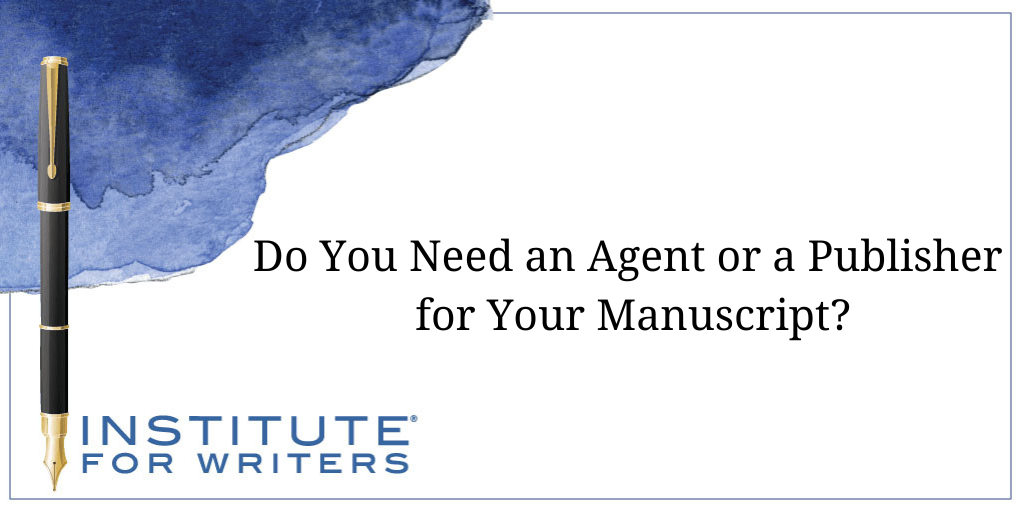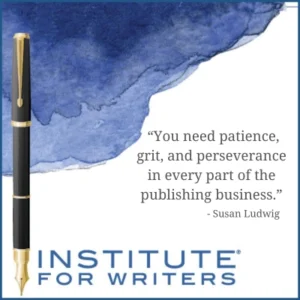
Back to School: Lifelong Learning is Where It’s At
Opportunities for lifelong learning about writing are abundant and during this back-to-school season it is easy to get inspired.

Congratulations! You have finally finished your book manuscript and have spent weeks and months at your computer, reviewing it, revising it, and carefully ensuring that every word and punctuation mark is correct. The feeling of accomplishment is like no other and there are no more words available to express how proud you are of your hard work. Now you are anxious to figure out your next move with this masterpiece.
 The next three blog posts will take a look at what a writer typically does after completing their manuscript; that is, making contact with an agent or a publishing house. Not everyone who writes a book wants to see their hard work published, but many do want to generate interest in what they have written and see their hard work as a printed book.
The next three blog posts will take a look at what a writer typically does after completing their manuscript; that is, making contact with an agent or a publishing house. Not everyone who writes a book wants to see their hard work published, but many do want to generate interest in what they have written and see their hard work as a printed book.
Although hybrid- and self-publishing are other available options for any writer, that huge arena is not a topic this month (do an online search of those terms if you are unfamiliar with the mechanics of each). In the blog posts ahead, we will look at traditional publishing via direct contact with an editor and how to find an agent to help place your book with a good publisher. We will also talk about the general components of a book proposal.
As you should already know, finding a home for your manuscript is a job in itself and there are no shortcuts. Although, a nice fantasy is to have an assistant who is able to do the research, find good potential publishers, and identify agents who are looking for a manuscript in the genre you have written. The reality is that most writers need to take the time to do this hard work on their own.
Eventually as they near the end of their writing course, most students I work with will ask if they should look for an agent to represent their work or try to find a publisher. That question has a few answers, and I guide students to the realization that finding an editor or an agent who even wants to read what they have written is one huge and challenging goal.
 Here are some other important ideas I encourage them to think about.
Here are some other important ideas I encourage them to think about.
First, most nonfiction books do not need agent representation, but will require a well-written and thorough book proposal. Book proposals will be discussed in an upcoming blog post, but these packages are submitted to nonfiction publishers to garner their interest. Nonfiction is often thought of as easier than fiction to place with a publisher but will usually require a new take or slant on a topic, extensive research, and a writing style that connects well with readers and is appropriate for the book’s topic. A book about fingerpainting with kids may be written in a bit of a lighter style, for example, than a book about the extinction of certain aquatic animals. Reading a wide assortment of nonfiction books will help a writer with the style and structure of their own idea.
Fiction manuscripts, especially those written by previously unpublished writers, tend to be more of a challenge to place with a publisher. That is because a writer needs to find someone to actually read and fall in love with the first pages of their story—enough so that the editor or agent wants to keep reading it and enjoying the manuscript from start to finish.
 Even with that in mind, I often suggest to writers that they first look for a traditional publisher for their manuscript. To do that, they can do an online search of “Book Publishers Accepting Unagented Submissions,” or some similar wording. This used to be an easy way to identify good publishers who still wanted to give new writers and their manuscripts a chance.
Even with that in mind, I often suggest to writers that they first look for a traditional publisher for their manuscript. To do that, they can do an online search of “Book Publishers Accepting Unagented Submissions,” or some similar wording. This used to be an easy way to identify good publishers who still wanted to give new writers and their manuscripts a chance.
These waters have gotten a bit muddy as there are publishers nowadays who accept manuscripts and charge writers miscellaneous fees to have their work published. Writers should not have to pay anything to have their book published and should beware of these companies who often publish just about any book. They usually won’t market the book beyond their website and may have a lower quality printed product than more established traditional publishers. So, beware of these publishing situations or enter agreements with them at your own risk.
A friend has written two mystery books and published each one with the same publisher, who charges her a fee and does not help sell the books at all beyond featuring them on the website. Curiously, the writer does not seem to mind her cash outlay and very low sales figures, but many writers may find that the amount of work involved with writing a good story warrants more sales and some income.
 It all requires patience. Writers should take some time to search out those publishers who do not require an agent and are open to submissions. There are not many of them but they do exist. Look closely at what they publish by going to each publisher’s website and studying the books they are marketing. Note where the books are sold. Find publishers whose books you feel are somewhat similar to the book you are proposing or have already written.
It all requires patience. Writers should take some time to search out those publishers who do not require an agent and are open to submissions. There are not many of them but they do exist. Look closely at what they publish by going to each publisher’s website and studying the books they are marketing. Note where the books are sold. Find publishers whose books you feel are somewhat similar to the book you are proposing or have already written.
Remember that you took months and months (or more) to write your book manuscript. It will take you at least that long to place your hard work with a good publisher, so don’t be frustrated by the time you spend. You need patience, grit, and perseverance in every part of the publishing business.
Susan Ludwig, MEd has been an instructor with the Institute of Children’s Literature for almost twenty years. Susan’s writing credits include teacher resource guides, English language learner books, and classroom curriculum for elementary through high school students. A former magazine editor, she assesses students’ written essays as a scoring director for the ACT and SAT exam. When she is not writing or working, she is usually found playing with her grandsons or curled up with a good book.

Opportunities for lifelong learning about writing are abundant and during this back-to-school season it is easy to get inspired.

As you seek to create characters, you will also want to work to strengthen the interiority of those you are writing about.

Character development is an interesting part of writing but may be among the most time consuming and significant in your story.
1000 N. West Street #1200, Wilmington, DE 19801
© 2024 Direct Learning Systems, Inc. All rights reserved.
1000 N. West Street #1200, Wilmington, DE 19801
1000 N. West Street #1200, Wilmington, DE 19801
2 Comments